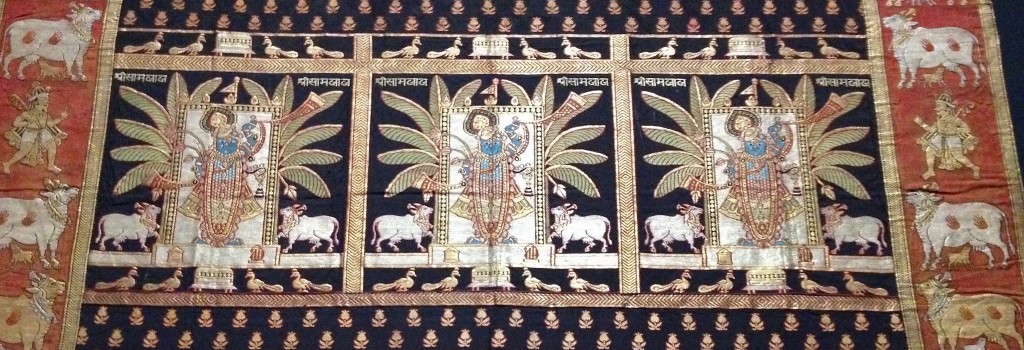When people ask me why I chose to study religion at Colorado College, I often find myself unable to provide a satisfactory answer. I’ll point out how helpful and intelligent the professors are. I’ll argue that one can explore religion as an anthropologist, a biologist, a linguist, etc. I’ll mention how courses in the department challenge limiting conceptions of a true or pure tradition. Somehow, though, I always leave the conversation feeling as if I failed to fully express the importance and relevance of this field of study. I therefore struggled to start writing this blog post as I found myself trying to neatly sum up the experience of studying religion. I didn’t realize that I was doing exactly what I’ve learned to resist the past couple years, attempting to generalize and define an experience that can’t be contained by language alone.
In the course description for Hinduism, Tracy Coleman writes, “Our goal is not to define Hinduism in a straightforward manner, but rather to glimpse how varying interpretations of central concepts construct a complex tradition that changes over time, while nevertheless remaining recognizably Hindu.” In the study of any religious tradition, then, one must examine the particulars to illuminate the whole. Studying Hinduism, I’ve made an effort to recognize complexity and inconsistency both between and within texts that have been historically understood as Hindu. In doing so, I’ve found that while most ‘Hindu’ texts wrestle with similar questions of desire, duty, and devotion, they nevertheless put forth divergent perspectives and worldviews. A hymn in the Rig Veda for example may encourage one to practice fire sacrifice in hopes of gaining material wealth, while an excerpt from the Upanishads or Yoga Sutras could explicitly condemn such desire for worldly comforts. These apparently opposing worldviews, however, are generally grouped together under the umbrella term Hinduism. Is one perspective more ‘Hindu’ than the other? Of course not. Individuals who identify as Hindu may value one text or deity over another, but no one is ‘right’ or ‘wrong.’ Instead, each person relates to tradition and culture in his or her own unique way, valuing one perspective as useful and relevant to his or her own life and rejecting opposing viewpoints.
Having said that, though, I must recognize the importance of family and tradition in the individual’s worldview and spiritual tendencies. Like most people living in the ‘western’ world, I often think of myself as an isolated individual, distinct from the outside world. In studying Hinduism and other religious traditions, though, I’ve had to appreciate different modes of being-in-the-world. In India, for example, people often understand themselves not as individuals separate from the external world but as an essential part of the whole. The actions of an individual have an impact on more than just that one person. People are not necessarily free to follow every whim and desire; instead, they all have their own dharma or duty to their family, caste and community. With this perspective, the individual has a real and pressing responsibility to maintain the social order. This way of looking at the world has been difficult for me to fully grasp at times as my own cultural conditioning convinces me that I truly am a distinct and unique individual, acting freely in every moment.
As I’ve immersed myself in various religious traditions, I’ve learned to embrace diversity and complexity as an essential feature of life as lived. I’ve also learned to rethink everything I thought I knew about religion. The major religions of the world today elicit many strong opinions and emotions. I came to Colorado College convinced that religion no longer had any real purpose or place in the modern world. I considered myself an atheist and believed that major religious traditions could only create further division and discord throughout the world. I quickly learned, though, that religion in the 21st century is experiencing truly remarkable growth. More and more people are turning to religion. While I still don’t quite know what I believe when it comes to God and the divine, I’ve found that there is truth and wisdom in every tradition. I’m no longer content to simply discredit and reject religion. Instead, I’ve resolved to immerse myself in these complex traditions and determine for myself their value and role in my life and worldview.
